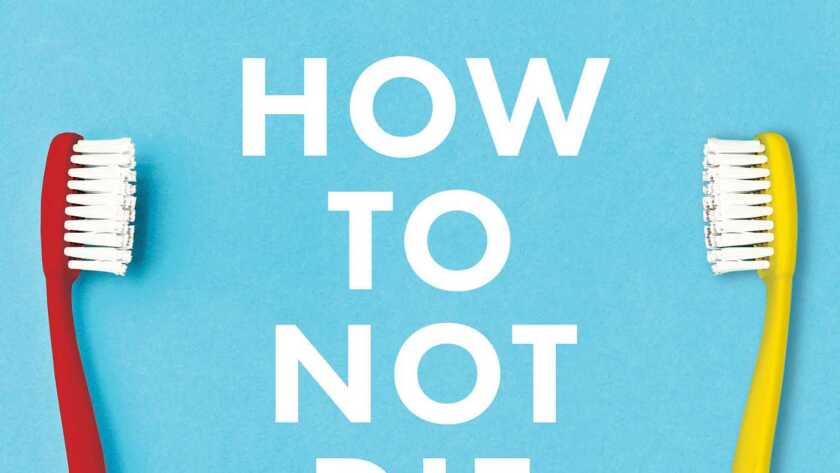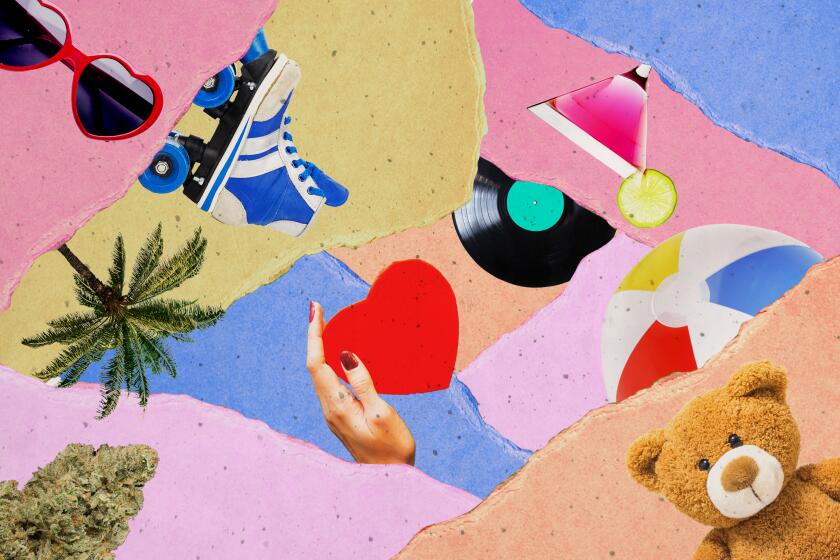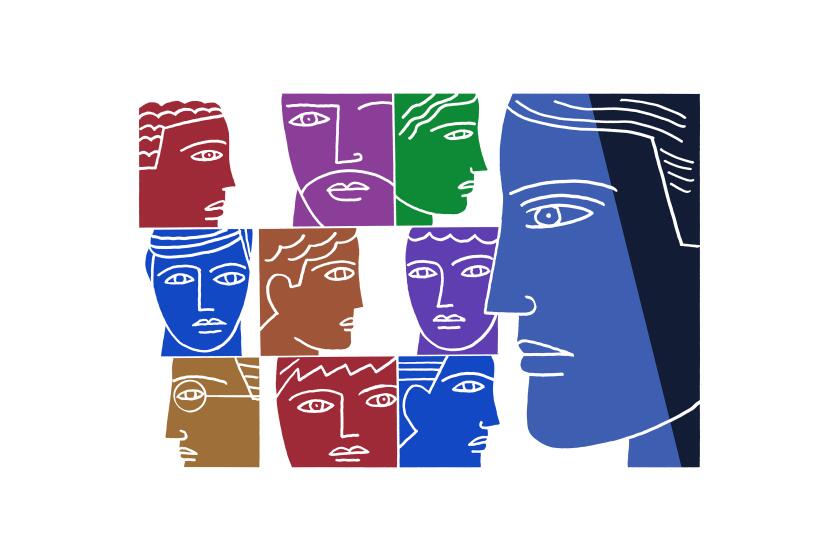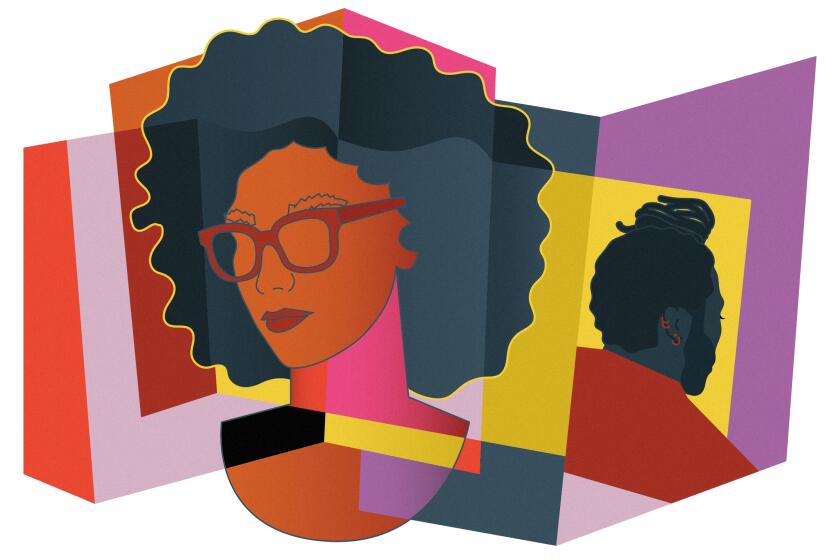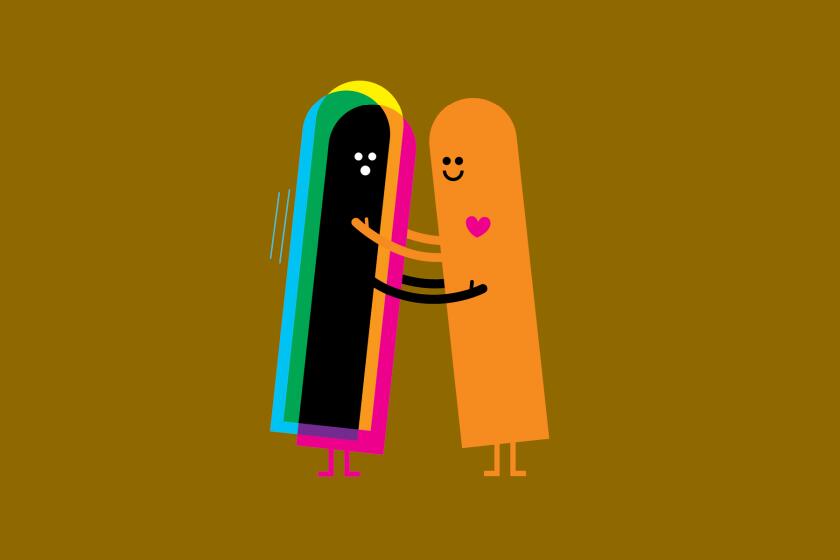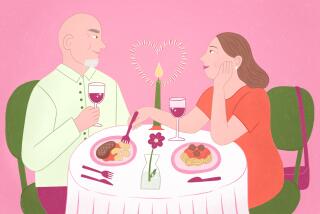How to date — pandemic or not — from “Hinge” romance scientist Logan Ury
- Share via
Logan Ury knows modern dating is harder than it’s ever been.
For starters, the forces that used to narrow our choices — religion, community, class — have broken down, enlarging the dating pool even before the advent of dating apps and sites. Now, hundreds of potential partners appear on our screens at a clip — a paralyzing paradox of choice. Social media connects us but makes it easier for others to stage, curate and filter out their flaws before we can.
Then there’s the pandemic, which limits safe interactions with strangers to the same screens we use for work all day.
- Share via
Listen to an excerpt from “How to Not Die Alone.”
It’s lonely out there, and Ury wants to help. A behavioral scientist formerly with Google, she’s now the director of relationship science at the dating app Hinge and the author of a new book, “How to Not Die Alone: The Surprising Science That Will Help You Find Love.”
On a recent phone interview, Ury said it starts with something called “love with intention.” The idea is to figure out your blind spots, fix bad habits and turn dating into more of a targeted search than a crapshoot. To Ury, this means using the tools of behavioral science to learn and steer around human impulses like loss aversion and unconscious patterns. There’s a quiz to help readers figure out their own baggage. Are you a Romanticizer, a Maximizer or a Hesitater?
On the cusp of a Valentine’s Day like no other, Ury spoke to The Times about the importance of good Zoom lighting, the unimportance of “the spark” and why pandemic isolation might not be such a bad thing. The interview has been edited for length and clarity.
Why did you decide to write this book?
About six years ago I created a Google Doc that said “Behavioral Science plus dating,” and so I’ve had this idea for many years. I’ve been pursuing it by working as a dating coach, doing one-on-one work to understand: What are the common patterns holding people back from finding love? I’ve spent the last year working at Hinge, understanding on a broad scale how people actually use dating apps to get into relationships. For a long time I’ve thought about ways to marry my two interests: the science of decision making and dating and relationships.
Being single on Valentine’s Day in a pandemic sounds bad. But does it have to be?
You define “intentional love” as the philosophy that dating should be seen as a series of choices rather than accidents. I imagine a pandemic makes it even more intentional.
The book is all about the idea that if you’re headed in one direction, you need a jolt in your system to help you make different choices, and the pandemic has done something similar. I’ve seen many people who were not in relationships for the last decade who would jump from first date to first date, from three-month relationship to three-month relationship — and the pandemic was actually what they needed to change their behavior.
One interesting thing our research at Hinge has found is that many people, especially at the beginning of the pandemic, did a lot of self-reflection. Over 50% of people say that they’ve broken a bad dating habit — like chasing after an ex or pursuing somebody who wasn’t interested in them. So one of the silver linings of the pandemic is that it has helped people reprioritize.
Maybe some are treating the dating-during-coronavirus process more respectfully, maybe it’s different in the straight world, but pandemic or no, the state of courtship is dismal.
What are the biggest dating mistakes you see?
I’ve categorized them into three dating tendencies, and each suffers from unrealistic expectations:
The Romanticizer suffers from unrealistic expectations of relationships. The Maximizer suffers from unrealistic expectations from their partners. And the Hesitater suffers from unrealistic expectations of themselves. So the key mistake is that they think it’s just all about effort: “I just have to show up and go on dates and eventually I’ll find someone.” But if you’re dating with biases and patterns of behavior that aren’t serving you, it doesn’t matter how many dates you go on. It’s really important to identify these dating blind spots and then actually change your behavior.
Dating apps and sites have seen huge spikes in downloads and subscribers since the pandemic started. How can love-seekers make their dating profiles stand out from the competition?
I help lead a team called Hinge Labs, and we’ve done a lot of research into what makes a great profile. The first thing, which might seem obvious, is just putting your best picture first — a photo of you that’s clear, that shows what you look like.
The second thing is choosing photos that show a variety of sides of your personality. Maybe some that’s your face, some that are full-body shots, and then some showing you with friends and family or doing activities you love. On Hinge we have these prompts — like “My ideal plus one to a wedding.” My advice there is to be specific to spark a conversation. Let’s say you really love cooking. Don’t just say “I love cooking.” Say “I love making my grandmother’s marinara sauce, which she brought over with her from Italy.” The more specific you can be the more you give people something to respond to and the more chance you have at showing your personality. Understand that your profile is your opening line, your first sentence in a conversation.
From a Fleetwood Mac concert in 1979 to roller skating in Venice, these are the best dates our readers have ever had in Los Angeles
Video calls have become the go-to alternative during the pandemic. Any tips for navigating virtual dates?
We found that the No. 1 reason people didn’t try video dating is that they thought it would be awkward. But 81% of people who have tried video dates say it’s not at all awkward. Step one is just giving it a try.
The second thing is making it feel like a date and not a job interview or a networking meeting. So if you are working and have a Zoom meeting from 5 to 6 p.m., do not schedule your Zoom date at 6:01 p.m. It will just feel like another work meeting. [Try] FaceTime instead, or taking an hour in between work and the date to shift into a different mind-set. You want to be present, relaxed and ready to connect.
If you haven’t done one, do a test run with a friend. Make sure your lighting looks good, your background is clean and you have a good angle — that it’s not below your chin.
What do you hope people looking for love, now or post-pandemic, take away from your book?
The thesis is that a great relationship is the culmination of great decisions. Make good decisions and you’ll propel yourself into a great relationship. My goal is that people can get out of their own way and actually find love.
People seem to like this chapter called “F— the Spark.” It’s one of the ones people have found counterintuitive, which always makes things more interesting. The spark has become my nemesis because I think people are very confused about what makes a great long-term partner. I debunk three myths around the spark. The first myth is that if you don’t feel the spark, it will never grow. And we know that that’s not true. Only 11% of people say that they experienced love at first sight. Many people end up dating somebody they worked with or who lived in their freshman dorm — because the more exposed you are to someone, often the more you like them.
The second myth is that if you feel the spark it’s necessarily a good thing. That’s just not true. Some people are very sparky and they’re very charismatic, or they may be very narcissistic and they give the spark to a lot of different people. Sometimes people even confuse anxiety for chemistry. And, finally, people think that if you experience the spark then the relationship must be viable, and we know that that’s not true. Many divorced couples once experienced the spark. A lot of couples just become very obsessed with their romantic how-we-met story; it is such a small percentage of the relationship. Don’t get into the wrong relationship because you met “the right way.”
I was proud of myself for getting to a place where I could love a man who could love me back. Nothing was perfect, but we were both growing. Then, she texted.
Lots of people are feeling anxious about having lost an entire year — and counting — of opportunities to meet the right person. Can you say anything reassuring?
The first thing I would say is you are not alone in feeling that way. You are pairing the anxiety and uncertainty of dating with the anxiety and uncertainty of the pandemic, and it’s completely normal and natural to feel this way. Second, you don’t need to put your dating life on hold. I’ve been impressed by the creativity and the resiliency of daters who have found many interesting ways to connect and get into relationships. You don’t have to wait for the pandemic to end — you can use video dating to connect with people in a safe and low-pressure way.
[Back to] the Hesitater, that’s a person who says, “I’ll be ready to date when … : When I lose 10 pounds. When I have a more impressive job. When I switch houses.” I have seen a lot of Hesitater tendencies during the pandemic, but I encourage those people to set a goal for themselves — maybe dating within the next three weeks, doing the things they need to do to get comfortable, realizing that you don’t have to take the year off.
From sex-coach apps to teledildonics, options for sexual intimacy are right at your fingertips
More to Read
Sign up for our Book Club newsletter
Get the latest news, events and more from the Los Angeles Times Book Club, and help us get L.A. reading and talking.
You may occasionally receive promotional content from the Los Angeles Times.
